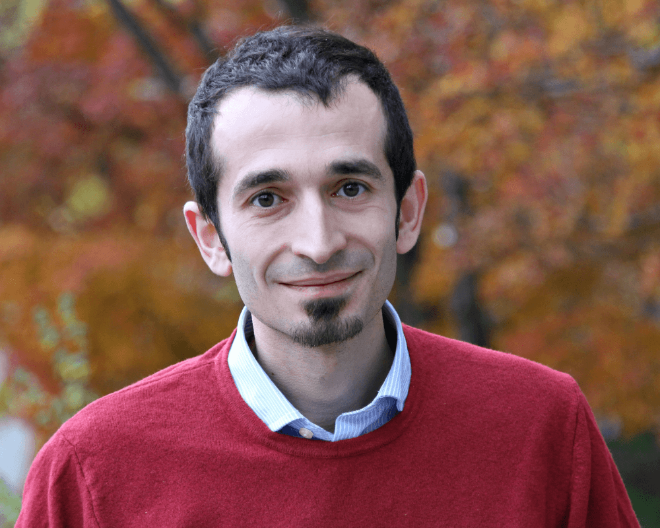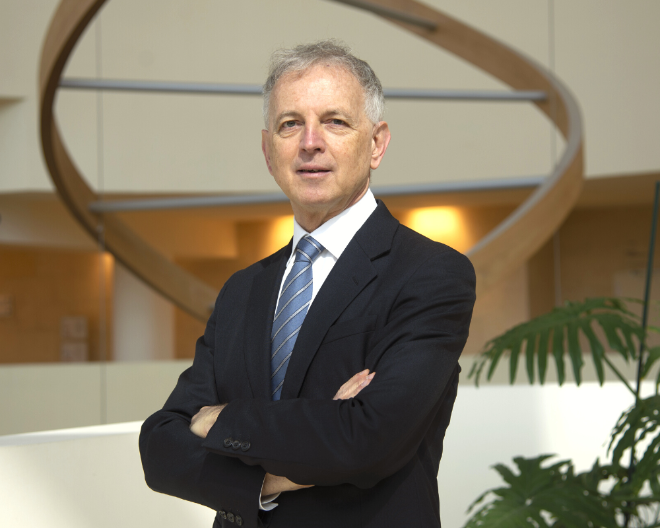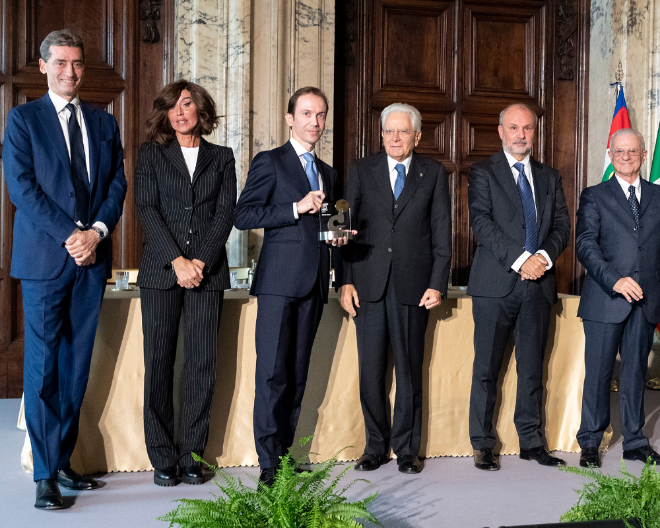UniSR wins two calls for the study of extracellular vesicles in bladder cancer

In multicellular organisms, communication between cells is essential for the correct organization of the whole organism. To spread the messages in each district, the cells developed a system that consists in the production of extracellular vesicles that carry information, becoming fundamental mediators of communication. The vesicles, of which different types exist, are not only implicated in some fundamental biological processes, but also in the development and progression of many pathologies including tumors.
For his studies on vesicles, Dr. Riccardo Vago, a researcher at the San Raffaele Urological Research Institute, has won two research calls, one national and one international. "I have always been fascinated by the different facets that characterize extracellular vesicles, mediators of physiological, but also pathological processes, biomarkers to monitor the development of the disease and potential vectors for the transport of therapeutic agents: in short, powerful tools that find multiple applications in the field of nanobiotechnology". This interest was substantiated in 2014 by an initial funding, followed by others which allowed to expand his fields of study of extracellular vesicles ranging from tumors to infertility, from nutrition to therapeutic application. "My role in these latest researches will concern the study of the composition and biological functions of exosomes, their use as disease biomarkers and in the development of therapies".

The extracellular vesicles
Until the first half of the 1980s, extracellular vesicles were considered to be like garbage bins where cells placed waste substances to get rid of them. “Subsequently, and thanks to pioneering work and 30 years of intense and passionate research by scrupulous scientists willing to rehabilitate their honor, they have been recognized as mediators of some fundamental biological processes, including inflammatory and immune response, development , reproduction, tissue repair and blood clotting, as well as implicated in the development and progression of many diseases including tumors". Each cell produces a group of extracellular vesicles which are poured into biological fluids (such as blood, urine, cerebrospinal fluid, breast milk, saliva...), from which they can be isolated and analyzed. The release seems to be a strictly regulated process so that both the quantity and the molecular composition (proteins, lipids, nucleic acids and metabolites) reflect the type and state of the cell that produces them. In the last two projects funded, Dr. Vago and his team will devote themselves to the study of exosomes, classically considered the smallest vesicles secreted by cells. "The collection of urine from bladder cancer patients at various stages and degrees of disease and the comparison with healthy controls will allow us to develop a system of isolation of exosomes based on their specific characteristics that vary during the course of the disease" .

Left: confocal microscopy photograph of cancer cells that internalized the exosomes. Right: transmission electron microscopy photography of exosomes isolated from cell supernatants. Courtesy of Dr. Vago.
The HYDROGEX project
In 2018, Dr. Vago and his team were winners of the tender in support of the "Transfer of knowledge in the advanced materials sector" funded by the Fondazione Cariplo and the Lombardy Region, which aims to support innovation processes and technology transfer, as well as the strengthening of collaborations between academia and business. The project is called " HYDROGEX: A peptide Hydrogel platform for extracellular veiscles isolation and multimodal analysis", and was carried out thanks to a synergy with the CNR, the Politecnico di Milano and the PMI Exosomics. The idea is based on the development of an organic matrix consisting of highly versatile hydrogels for the selective isolation of extracellular vesicles that preserves their structural and functional properties and is adaptable to different contexts of analysis. This system will allow to characterize the vesicles of tumor origin, a simple and non-invasive method to support clinicians in making the most effective prognosis.

The MARVEL project
Dr. Vago is also PI of a winner project of the FET (Future and Emerging Technologies) Proactive call, included in the international Horizon 2020 program, which aims to identify future and emerging technological paradigms with high potential for the European economy and society, promoting the development of new research communities and encouraging researchers from different disciplines to work together on new technologies in specific sectors.
The name of the project is “MARVEL”, like “Evolving reversible iMmunocapture by membrane sensing peptides: towARds scalable extracellular VEsicLes isolation”, it will have a 2-years duration and it is based on the collaboration with the CNR, Spanish and Estonian and Swiss companies and foundations. Thanks to the skills of Dr. Vago's team, it will be possible to selectively capture the vesicles produced by cancer cells released into biological fluids to monitor tumor development and give useful indications to clinicians for therapeutic interventions. A second objective, which will be developed by other partners, concerns another property of the extracellular vesicles, capable of mediating the process of tissue regeneration in the heart muscle.
A professional and personal satisfaction
Dr. Vago declares: “Serving as a PI in these projects repays the efforts made over years of work and places them in an application perspective, capable of generating new scientific knowledge and technological skills at the service of patients. A productive interdisciplinary contamination is for me an opportunity that allows approaching a problem from different points of view and find solutions that otherwise would not have been possible to imagine. I am proud to be the bearer of ideas matured in the fertile and demanding context of the Institute that I represent, and satisfied to bring the comparison on a national and continental scale to reach a greater number of people. I hope to provide professionalism and creativity for the concrete and positive development of the projects".

Tags:
You might be interested in

Boletta and Iannacone awarded two ERC Advanced Grants

ERC Consolidator Grant awarded to Dr. Donato Inverso

Phacilitate Lifetime Achievement Award 2024 For Advanced Therapies To Luigi Naldini

